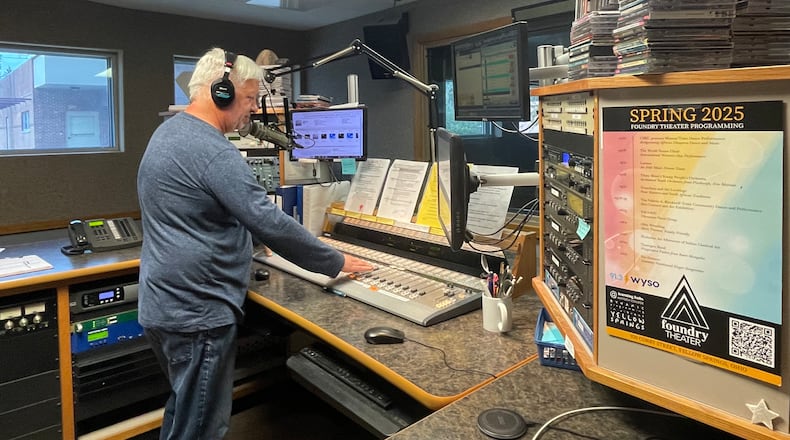What does federal support make possible? For $1.60 per person per year, all Americans have free access to:
- public safety systems that cover 99% of the United States, including emergency alerts that reach rural areas without internet, reliable cell service or other media (To cite just one example among many: Blue Ridge Public Radio in North Carolina was one of the few ways people got critical safety updates during the devastating flooding after Hurricane Helene.)
- high-impact educational services (I was raised by Mr. Rogers and Sesame Street – weren’t you?!)
- community-focused programming
- trusted local storytelling, journalism and music
If it does all these good things for such a relatively small amount of money, why is public media under attack? It’s not about the money. It’s because our journalism reports the truth about the harmful impacts of President Trump’s policies. Our professional journalists interview the people and organizations impacted. Their voices are persuasive. That’s why public media is under attack. These are efforts to silence us.
President Trump seeks total elimination of federal support for public media through three distinct tactics: An executive order; FCC investigations into our sponsor messages; and a rescissions package. The rescissions package was delivered to congress on Tuesday. If approved it will claw back that $1.1B. That’s what inspired me to write this: if you care, please oppose this rescissions package.
Trump’s antipathy for public media is not inspired by a desire to reduce wasteful government spending. It is an effort to infringe on rights guaranteed by the First Amendment: freedom of speech and freedom of the press. The fundamental purpose of the First Amendment is to create an informed and engaged citizenry. That is at odds with this administration’s efforts to manipulate and control the narrative.
It’s not surprising. The first “to do” in any budding authoritarian’s playbook is to control the media. The 20th century has numerous examples of this.
Help me defend independent media. Visit protectmypublicmedia.org. There you can send emails to your lawmakers.
A free press is an American institution. Hannah Arendt wrote that widespread loss of faith in institutions is a precursor to totalitarianism. Please, let’s not lose faith in the ability of a free press to help us understand this world we’re living in.
Luke Dennis is the General Manager of WYSO and the president of Miami Valley Public Media.
About the Author

